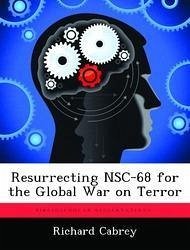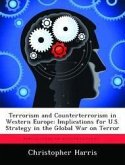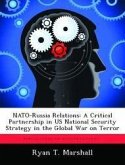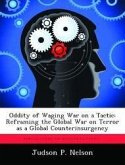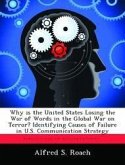Can the United States wage a Global War on Terror with the current strategies in place? The U.S. waged a similar "long war" over four decades against communism. Although the threat to today's U.S. national interests is a form of terrorism being waged by Radical Islam there are distinct similarities to the threat of communism posed after World War II. For the defeat of communism, one single document formed the foundation for the long term strategy to prosecute the Cold War. All instruments of national power were addressed in the recommended course of action and the entire process was centrally controlled by the newly formed National Security Council. The document, NSC-68, clearly identified the threat, U.S. national interests, and the methodology for applying instruments of national power to defeat communism. Today's threat posed by Radical Islam has proved to be ideological and existential much like the communist threat, however, the strategies being developed within the U.S. Government for defeating the threat do not appear as effective as those during the cold war. The hypothesis this monograph proposes is that the organization of the National Security Council and the processes it used for advising the President on foreign policy are no longer working due to the bureaucratic growth in the U.S. Government. A proliferation of strategies by separate departments and agencies spurred by a "lead agency" approach of the current administration will prevent the U.S. from maintaining a long war focus on the threat facing our vital interests. The components of the threats faced during the Cold War and the Global War on Terror are ideology and the existential nature of the threat. Writings by then Secretary of State George Kennan describe communism as defined by Lenin in 1916 as an ideological threat with not only the capability to harm the U.S. but also with the intended capacity to threaten our interests. For the discussion of the threat of Radical Islam, recent authors Ma
Hinweis: Dieser Artikel kann nur an eine deutsche Lieferadresse ausgeliefert werden.
Hinweis: Dieser Artikel kann nur an eine deutsche Lieferadresse ausgeliefert werden.

